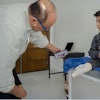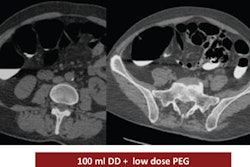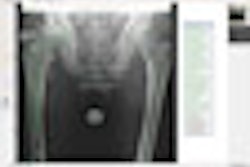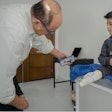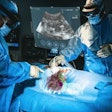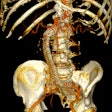
NEW YORK (Reuters Health) - Mobile teleconsulting is a feasible way to evaluate remotely located patients who have just had a stroke, according to a report in the current issue of the journal Stroke. Although researchers found that hospital-based, land-line systems still provide better quality communication.
In a study involving two stroke centers and 14 local hospitals in Germany, investigators analyzed telephone consultations performed at fixed telemedicine workstations using high-speed Internet connections and laptops that could be taken to remote sites.
Specifically, the researchers compared the technical parameters, acceptability, and impact on immediate clinical decisions of consultations performed with the mobile vs land-line devices.
The teleconsultants reported that the process took longer when the laptops were used, despite almost identical download time measurements. They also rated the video and audio quality to be better with the hospital-based system.
Although the technical quality of the mobile communication was rated worse on both sides, "this did not affect the ability to make remote decisions like initiating thrombolysis," a "clot-busting" drug treatment for stroke, and the mobile system was technically stable, the authors report.
"During times of low teleconsultation frequency, this service can be provided from home or from elsewhere," Dr. Heinrich J. Audebert from Charite Universitatsmedizin in Berlin told Reuters Health. "Currently, the technical quality of mobile teleconsultation is not equivalent to landline connections."
He and his colleagues point out while mobile devices are feasible in low-frequency circumstances, a hospital-based device would ensure optimal quality when teleconsultation frequency is high.
"Telemedicine in stroke care is only an instrument to make stroke expertise more available," Audebert stressed. It does not replace on-site, high-quality stroke treatment. "Therefore, a lot of specialized infrastructure, training, and quality monitoring are needed in telemedicine networks."
"We are currently investigating the use of telemedicine in pre-hospital stroke care," Audebert added. "We use telemedicine equipment in ambulance cars and patients are examined via videoconferencing before they are admitted to the hospital."
By Will Boggs, M.D.
Source: Stroke, December 2008.
Last Updated: 2008-12-22 14:39:14 -0400 (Reuters Health)
Related Reading
Telehealth program cuts costs, helps patients improve health, March 31, 2008
Copyright © 2008 Reuters Limited. All rights reserved. Republication or redistribution of Reuters content, including by framing or similar means, is expressly prohibited without the prior written consent of Reuters. Reuters shall not be liable for any errors or delays in the content, or for any actions taken in reliance thereon. Reuters and the Reuters sphere logo are registered trademarks and trademarks of the Reuters group of companies around the world.


